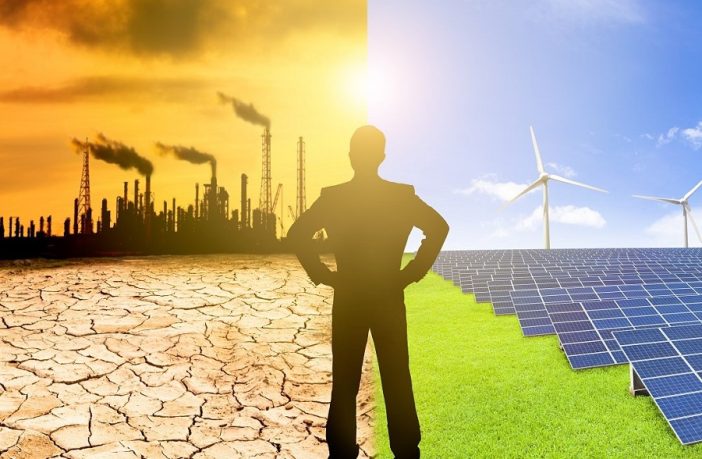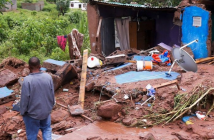Opinion
Even before the climate crisis it has always been inevitable that SA would have to close down coal power stations as they reached their end of life. The 2010 Integrated Resource Plan (IRP) provided for the decommissioning of 10,902MW of existing capacity, and the 2019 IRP contains a detailed schedule with decommissioning dates for each power station.
Yet the procurement of replacement capacity from the renewable energy allocation in the IRPs of 2010, 2012 and 2019 has consistently fallen behind. Only in 2022, as part of the government’s energy crisis response, did we see a determination issued for the full 2019 IRP allocation renewable energy capacity.
Sometime during the past few years, to tackle supply and cost concerns, Eskom pushed back the 2019 IRP decommissioning schedule by three to eight years. In addition to the resulting violation of air quality laws, modelling by the Centre for Research on Energy & Clean Air shows this deferral will already lead to a projected 2,800 excess deaths and a total economic cost of R61bn.
In 2022 Eskom was given permission to bypass the sulphur dioxide (SO2) pollution equipment at Kusile until March 2025. This emergency measure is projected to result in 670 excess deaths from air pollution, 3,000 asthma emergency room visits, 1,400 pre-term births, 720,000 days of work absence and 900 years lived with disability due to chronic obstructive pulmonary disease, diabetes or stroke.
Now, with further delays projected for the closure schedule, we are looking at more devastating health effect projections. Should the current schedule be deferred to begin by 2030 this would cause a projected 15,300 excess air pollution-related deaths, 52,000 asthma emergency room visits, 9,300 new cases of asthma in children, 22,000 pre-term births, 13-million days of work absence and 18,000 years lived with disability. The total economic costs of these projected health impacts comes to R345bn.
Rights enabler
The problem is that the neglect of ageing coal power stations, the failure to plan and implement grid improvements and expansions, plus a concerted effort to slow down the uptake of renewable energy, have severely limited our options. Who benefits from this? Not the people living in the Mpumalanga highveld and other coal areas.
Here, thousands of families are quietly bearing the burden of poor health — the constant respiratory tract infections, the heart problems, the cognitive effects of living with poor air quality, the lives cut short by constant exposure to air pollution. Year after year the National Air Quality Office reports that these areas do not meet health-based ambient air quality standards.
Load-shedding also devastates and costs lives, through air pollution from burning wood and coal in and around homes. Electricity is an enabler for the realisation of so many fundamental rights: safety and security of the person, particularly for women; education; access to potable water; and healthcare. Providing affordable electricity, the generation of which doesn’t kill people or make them sick, is a global development priority.
So what is to be done?
Urgent measures should be implemented to mitigate the persistent damage to people’s health. At Kusile, the fisheries, forestry & environment minister has required Eskom to step up monitoring, reporting and publication of air pollution data, and to undertake independent health screening and referral of sick people to public health facilities for treatment. Environmental justice groups are demanding still more proactive interventions by Eskom to manage and respond to exposure to Kusile’s excess pollution — measures that should be expanded to other affected areas.
Beyond health mitigation measures, providing compensation for people living in the most polluted areas who will now have to breathe Eskom’s polluted air for even longer should be seriously considered. This could be in the form of tax breaks, special income grants, bursaries for pupils from these areas, special employment schemes prioritising graduates from affected areas, or even free high-speed internet.
These are the kind of broad restorative justice interventions that would go some way to make up for the human rights violations being committed daily by delaying the closure of polluting coal power stations.
Speed up
Everything possible should be done to facilitate the escalation and scaling up of renewable energy, and while we’re doing that at grid-scale, the opportunity to provide cheaper, clean electricity to the poor should be used. The idea of socially owned renewables, including off-grid generation, is finally getting the attention it deserves, but much more must be done to develop financial models and finance pilot projects to make this a reality.
Preparation for closure at the next coal power stations should be speeded up and sharpened. Much has already been learnt from the early stages of the decommissioning, repurposing and economic diversification at Komati. New local economic development, community and worker support projects need to get up and running promptly, well before the coal power stations are disconnected.
One glimmer of light is that some of the air pollution burden has been lifted at Komati by the closure of the last unit in October 2022. It is estimated that the closure of the plant has already avoided 220 deaths and R4.9bn in health costs.
The timing of the closure of Eskom’s coal power stations is not just a political, economic or energy supply decision. Deferring these closures and allowing pollution to continue costs thousands of lives and condemns hundreds and even thousands to poor health and poor quality of life. Addressing these rights violations has to be part of our energy transition.
Author: Melissa Fourie
Melissa is a climate and environmental justice lawyer and activist, she is also a civil society commissioner on the Presidential Climate Commission
Disclaimer: The articles and videos expressed in this publication are those of the authors. They do not purport to reflect the opinions or views of Green Building Africa, our staff or our advertisers. The designations employed in this publication and the presentation of material therein do not imply the expression of any opinion whatsoever on the part Green Building Africa concerning the legal status of any country, area or territory or of its authorities.















